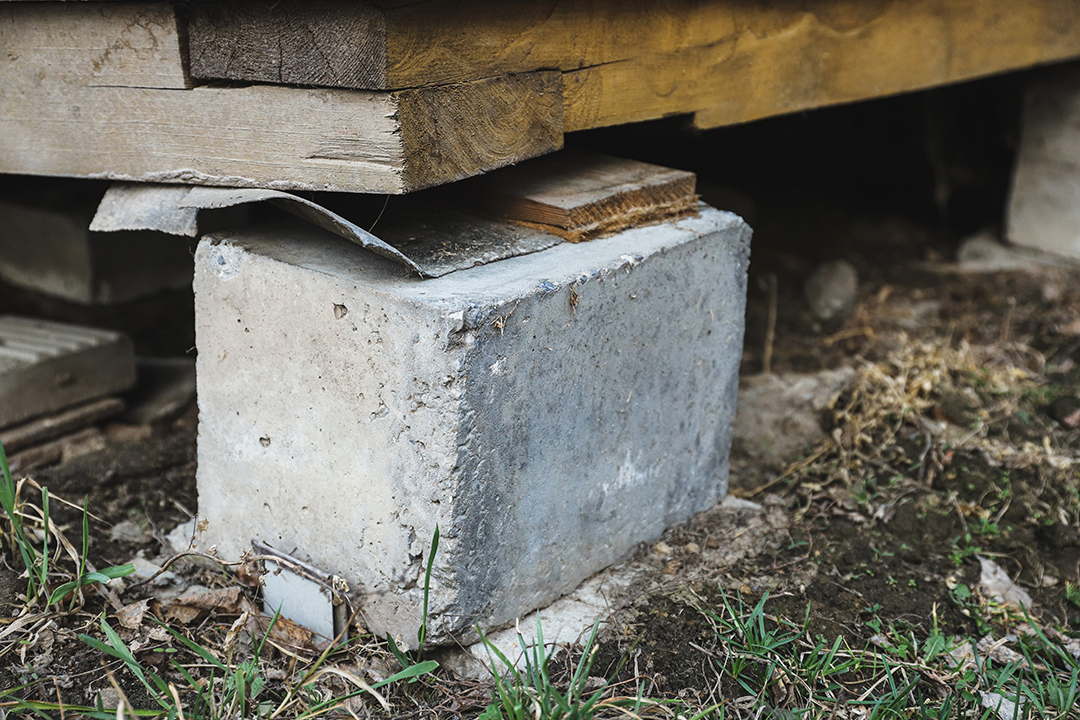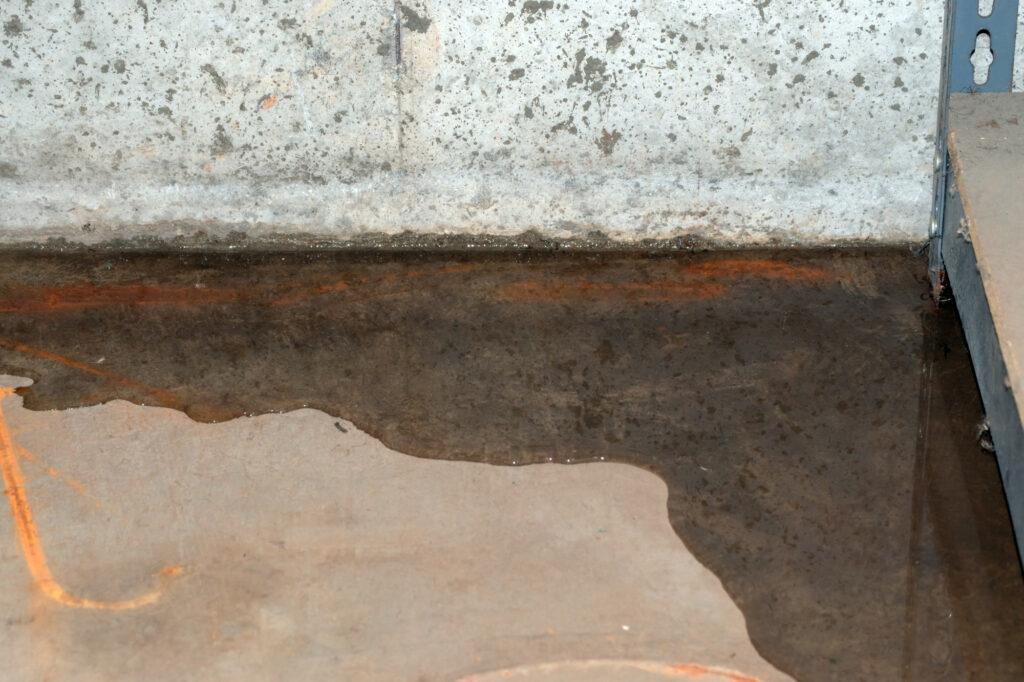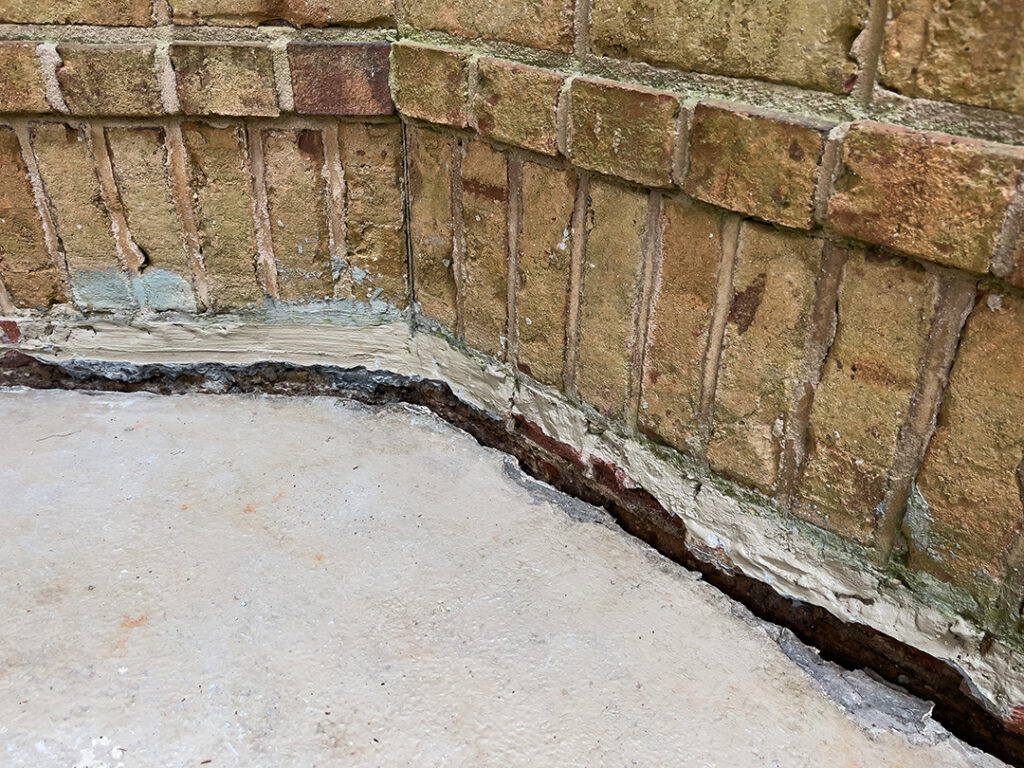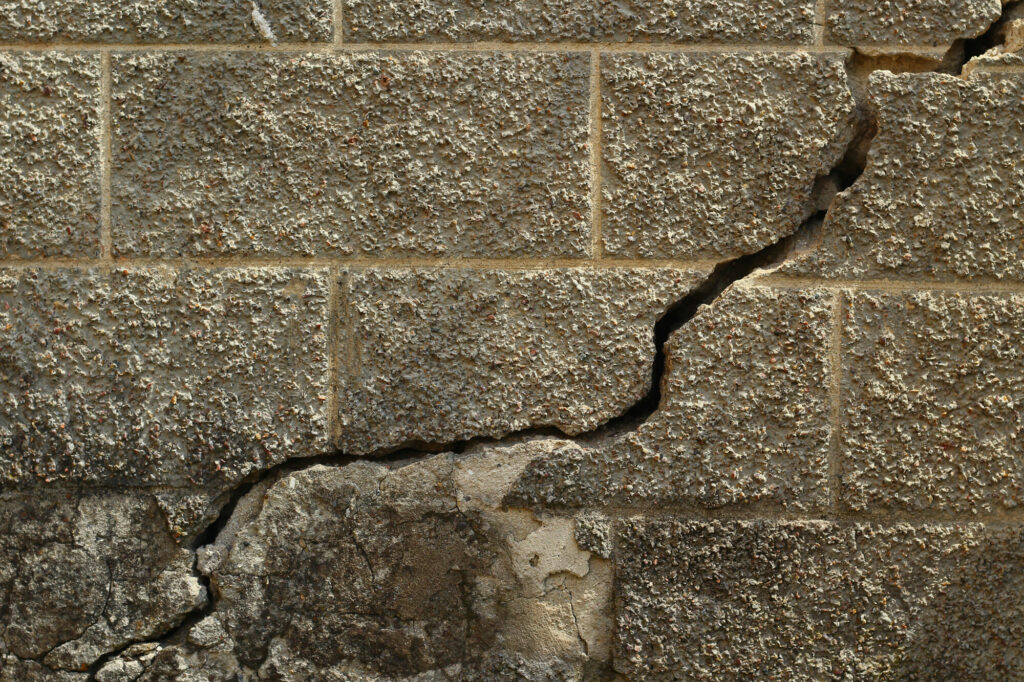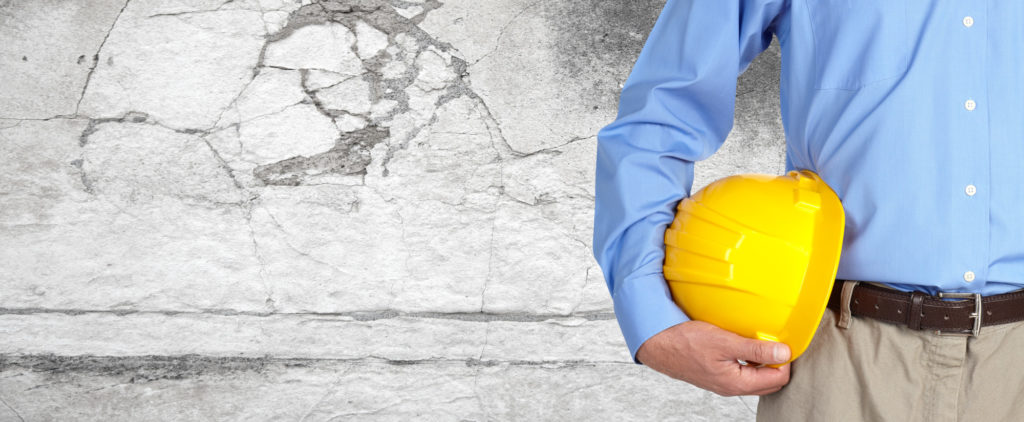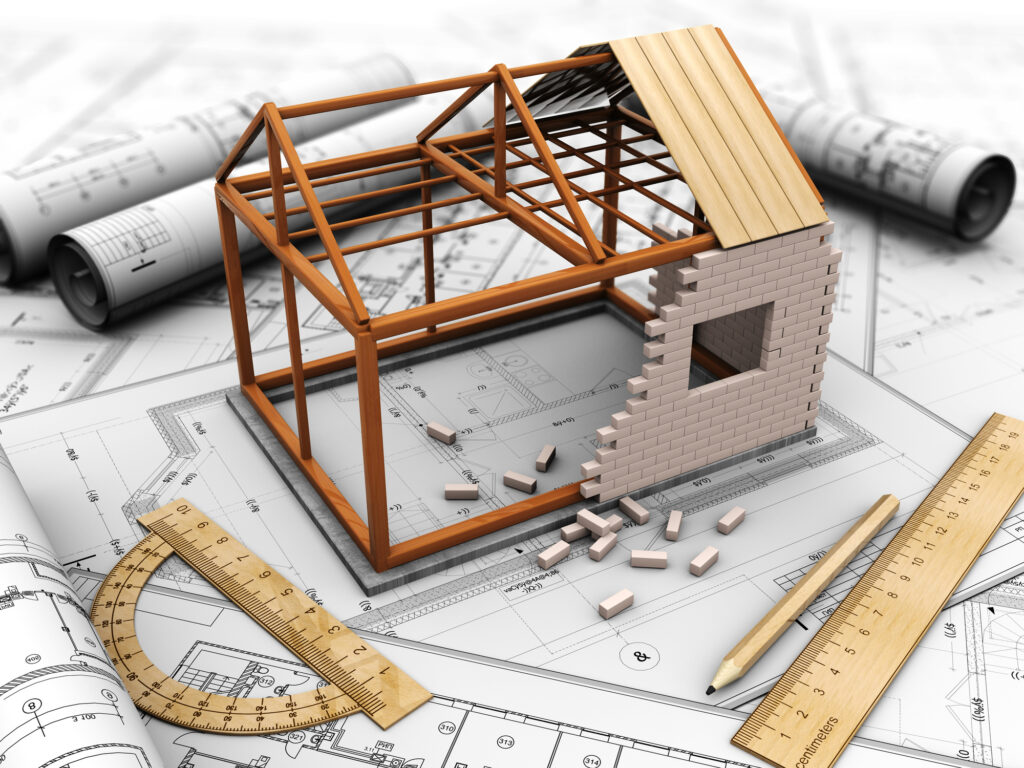Struggling with foundation issues in your historic North Texas home? We’ve been there too, and researching how to preserve the unique charm of these architectural gems is challenging.
This article unravels all you need to know about addressing common foundation problems while maintaining your property’s historic integrity. Stay tuned – this may save your home’s heritage!
Understanding the Importance of Foundation Repair in North Texas for Historic Homes
Maintaining the structural integrity of historic homes is crucial, not only for preserving their historical significance but also for increasing property value. Foundation damage can lead to costly repairs and jeopardize the overall stability of these cherished architectural treasures.
Recognizing the signs and symptoms of foundation issues is essential to address them promptly and prevent further deterioration.
Maintaining structural integrity
Periodic upkeep of your home’s foundation is an active move towards preserving its structural integrity. By ignoring minor damages today, you risk significant problems down the line. Structural snags like cracks in walls or floors, sagging roof lines, and doors that stick or don’t close properly are signs you shouldn’t overlook.
We focus on repairing these glitches and maintaining the aesthetic appeal of your historic homes in North Texas. Whether it’s a pier and beam foundation in Junius Heights or Lakewood, we’ve got it covered! Regular maintenance safeguards your property from severe deterioration and expensive restoration work later.
So why wait? Together let’s restore strength to your home while keeping its heritage intact.
Increasing property value
Proper foundation repair plays a significant role in upping the worth of historic homes. It’s more than just about maintaining the original charm and beauty; it’s about making a wise investment that pays off in the long run.
A solid, well-maintained foundation can skyrocket property valuations. Potential buyers value aesthetics and structural integrity when purchasing old houses. An effectively repaired and properly maintained home foundation indicates overall health, reducing risks associated with deferred maintenance costs or unexpected repairs.
Investing time and resources into specialized services such as pier & beam repair or mud jacking not only secures the longevity of your home but also significantly enhances its market appeal and financial value.
With each quality repair done by professional services like FCS Foundation and Concrete Services based in North Texas, you’re gradually increasing your property’s worthwhile preserving its historical essence.
Signs and Symptoms of Foundation Damage
Recognizing common signs of foundation damage is the first step towards preserving and maintaining your historic home’s structural integrity. Being vigilant about these indicators can prompt swift action, allowing you to address potential problems before they worsen.
- Visible cracks in walls or ceilings often indicate that your home may need foundation repair. Cracks may appear small initially but can grow if not addressed promptly.
- Uneven or sloping floors: If you notice an unusual tilt in your room or feel like you’re walking uphill inside the house, this could be a sign of foundation settlement in North Texas.
- Doors or windows stick when opening or closing: A shifting foundation can alter the alignment of doors and windows, making them difficult to operate.
- Gaps around window frames or exterior doors: Excessive soil movement under the foundation causes these issues.
- Misaligned moldings: If your wall and crown moldings no longer line up perfectly, it could be due to foundation issues.
- Leaning chimney: A leaning chimney is another common indication of possible foundation damage.
Common Foundation Issues in Dallas
Soil movement, tree root invasion, and water damage are common foundation issues experienced in Dallas.
Soil movement
Soil movement is a common issue that can cause significant damage to historic homes in North Texas. The clay soils found in this region are prone to expanding and contracting due to changes in moisture levels.
As the soil moves, it can lead to foundation settling, cracking, and other problems that require immediate attention. Historical homes are particularly vulnerable because they often need more modern foundation designs and materials.
To mitigate the effects of soil movement, it’s essential to have proper drainage systems in place, such as gutters and downspouts. These measures will help prevent excessive moisture infiltration and minimize the risk of foundation damage.
Tree root invasion
Tree root invasion is a common problem that can lead to foundation issues in historic homes. When trees are located too close to the house, their roots can infiltrate the soil surrounding the foundation, causing it to shift and become unstable.
This can result in cracks in walls and floors, uneven or sloping floors, and doors and windows that stick or don’t close properly. Additionally, large trees near the house increase the risk of tree root invasion and foundation problems.
The roots exert significant pressure on the foundation, leading to structural damage over time. Homeowners with historical homes must be aware of this issue and take steps to prevent tree root invasion from occurring.
Water damage
Water damage is a common issue that often accompanies foundation problems in historic homes in North Texas. When the foundation of a house is damaged, it can lead to water seepage, leaks, and moisture issues, which can cause significant damage to the interior and exterior of the house.
These water-related issues can also result in mold and mildew growth, rotting wood, structural instability, and compromised foundation integrity. It’s essential to be aware of the signs of water damage related to foundation issues, such as damp or wet walls, musty odors, peeling paint or wallpaper, warped floors, and visible cracks.
To address this problem effectively in historical homes, it is recommended that you seek professional services from specialized foundation repair companies that have experience working with historic properties.
Top Foundation Repair Company in North Texas
When it comes to foundation repair in North Texas, one company stands above the rest – FCS Foundation and Concrete Services. With over 25 years of experience and a team of highly skilled professionals, they are the go-to choice for homeowners looking for top-quality repairs.
Don’t settle for anything less than the best – click here to learn more about what makes them the leading foundation repair company in North Texas.
FCS Foundation and Concrete Services
At FCS Foundation and Concrete Services, we are proud to be one of the top foundation repair companies in North Texas. Our team specializes in repairing both concrete slab and pier and beam foundations, using a variety of methods such as pressed concrete pilings, steel piers and pilings, drilled concrete piers, and helical piers.
We also offer pier and beam foundation repair, drainage repair, mud jacking, root barriers, and masonry repairs. With our expertise and experience in serving areas including Collin County, Dallas County, Denton County, Grayson County, and Tarrant County – we can help you with your foundation repair needs.
Trust us to provide reliable solutions that will ensure the stability of your home or property for years to come.
Importance of Regular Foundation Inspections
Regular foundation inspections are crucial for historic homes in North Texas to maintain their durability and reliability. By conducting routine inspections, homeowners can identify any potential foundation issues early on and take prompt action to prevent further damage.
FCS Foundation and Concrete Services in North Texas specializes in foundation repairs for concrete slab and pier and beam foundations, serving multiple counties and cities in the area. They have expertise in repairing foundation issues in historical districts such as Dallas Historic District, Junius Heights, Lakewood, and Munger Place.
With their focus on maintaining the historical integrity of older homes, they provide solutions for repairing and leveling pier and beam foundations. By scheduling regular inspections with a trusted company like FCS Foundation and Concrete Services, homeowners can ensure the longevity of their historic homes while preserving their architectural heritage.
Tips to Prevent Foundation Damage
Follow these essential tips to keep your historic home’s foundation in excellent condition. Discover expert advice from a foundation engineer and learn practical methods to prevent tree root damage.
Take advantage of these valuable insights!
Home Maintenance Tips from a Foundation Engineer
Here are some home maintenance tips from a foundation engineer:
- Keep the soil around your home’s foundation consistently moist. This helps prevent soil shrinkage and expansion, which can lead to foundation issues.
- Install a proper drainage system to direct water away from your foundation. This includes installing gutters, downspouts, and slope grading.
- During dry spells, maintain a consistent moisture level around your home using a soaker hose or sprinkler system.
- Avoid over-watering your lawn or garden near the foundation, as excess water can seep into the soil and cause instability.
- Regularly inspect your home for signs of foundation damage, such as cracks in walls or windows that are difficult to open or close.
- Address any plumbing leaks promptly, as water leaks contribute to soil erosion and can weaken the foundation over time.
- Avoid planting trees or shrubs too close to the foundation, as their roots can penetrate the soil and cause movement in the foundation.
- Consult with a professional if you suspect any foundation issues or have concerns about the stability of your home.
Tips to Prevent Tree Root Foundation Damage
We have compiled a list of tips to help prevent tree root damage to your foundation. Following these simple steps can protect your home and avoid costly repairs.
- Maintain a safe distance: When planting trees near your home, leave enough space between the tree and the foundation. Trees with aggressive root systems should be planted further away to minimize the risk of damage.
- Choose the right species: Research which species have non-invasive root systems before planting trees near your home. Opt for trees that have shallow or non-spreading roots to reduce the chances of foundation damage.
- Install root barriers: Consider installing root barriers around existing trees or shrubs that are located close to your foundation. These barriers can help redirect roots away from your home’s foundation, preventing potential damage.
- Regularly monitor and trim tree roots: Keep an eye on the growth of tree roots near your foundation. If you notice any roots encroaching on your home’s foundation, consult an arborist or professional landscaper who can carefully trim them without harming the tree’s health.
- Properly manage watering: Overwatering can encourage tree roots to grow in moisture-rich areas, including your foundation. Avoid excessive watering around trees close to your home and ensure proper drainage in your yard to prevent water accumulation near the foundation.
- Consult with professionals: If you suspect that tree roots may be damaging your foundation, promptly seek advice from a certified arborist or a trusted foundation repair company. They can assess the situation and provide recommendations for mitigating any potential damage.
Frequently Asked Questions
We understand you may have several questions about foundation repair, especially for historic homes in North Texas. Therefore, we’ve compiled a list of frequently asked questions and their answers to provide clarity and empower you to make an informed decision.
What services do FCS Foundation and Concrete Services offer?
We specialize in various services, including concrete slab and pier and beam foundation repair, pressed concrete pilings, steel piers and pilings, drilled concrete piers, helical piers, drainage repair, mud jacking, root barriers, and masonry repairs.
What areas do you serve?
We serve various locations in North Texas, including Dallas, Plano, Frisco, Richardson, Rockwall, Tarrant County, Irving, Carrollton, Arlington, Allen, McKinney, and Mesquite.
Do you provide services in the Dallas Historic District?
Yes, we have experience repairing foundation issues in the Dallas Historic District and provide services in specific areas, including Junius Heights, Lakewood, Munger Place, and the Swiss Avenue Historic District.
What are common foundation issues in Dallas?
The typical foundation issues we’re often called to deal with include soil movement, tree root invasion, and water damage.
Why should I regularly inspect my home’s foundation?
Regular foundation inspections are crucial for the early detection of potential problems. This can save you from more extensive and costly repairs in the future.
Can I prevent foundation damage?
Yes, preventing foundation damage is possible with proper home maintenance. Steps include maintaining good drainage, preventing tree root foundation damage, and regular inspections.
Can I DIY foundation repairs on my historical home?
Foundation repairs should typically be left to professional contractors experienced in working with historic properties. DIY attempts could worsen the problem or cause further damage to the structure.
Conclusion
In conclusion, maintaining the foundation of historic homes in North Texas is crucial to preserving their structural integrity and increasing property value. With common foundation issues like soil movement and tree root invasion, it’s essential to have regular inspections and repairs from a reputable company like FCS Foundation and Concrete Services.
By following prevention tips, homeowners can ensure that their historic homes remain strong for years to come. Contact us today for a free foundation inspection to protect your valuable piece of history.

